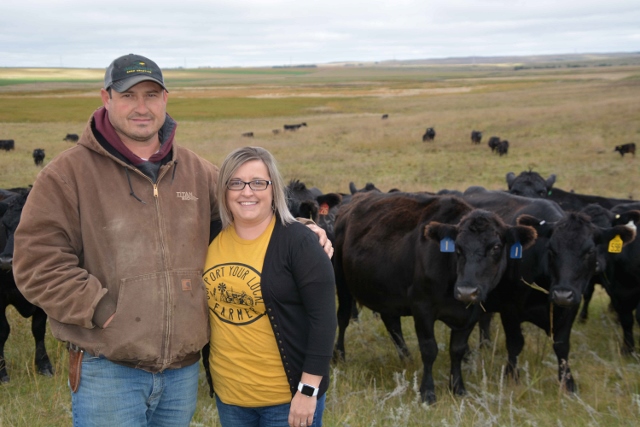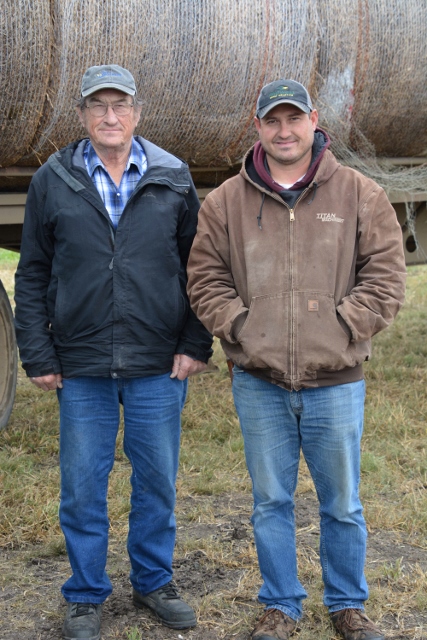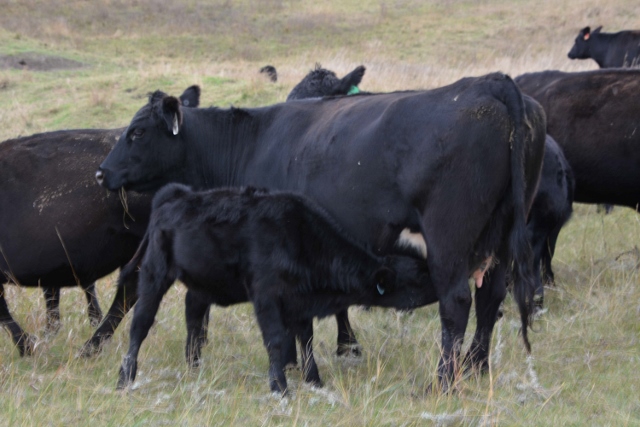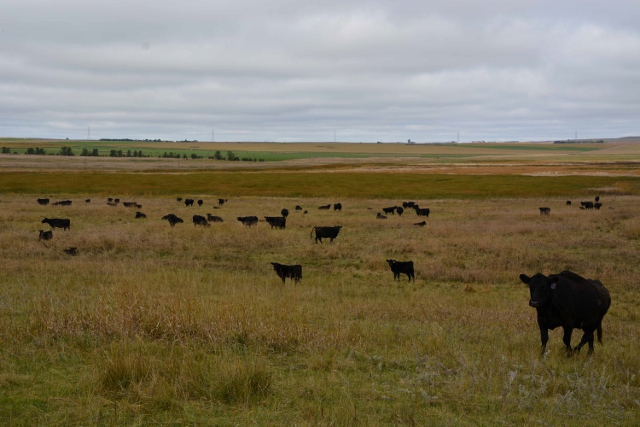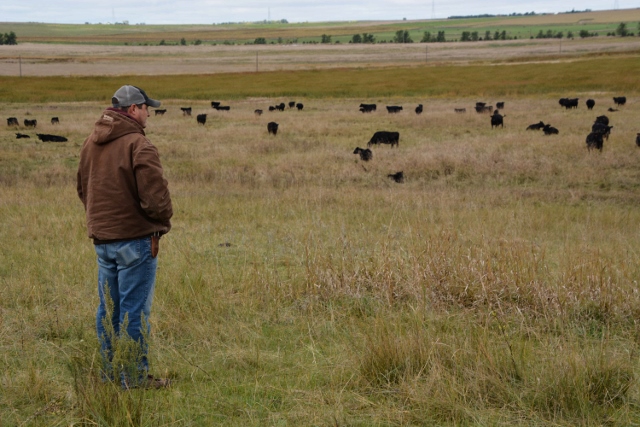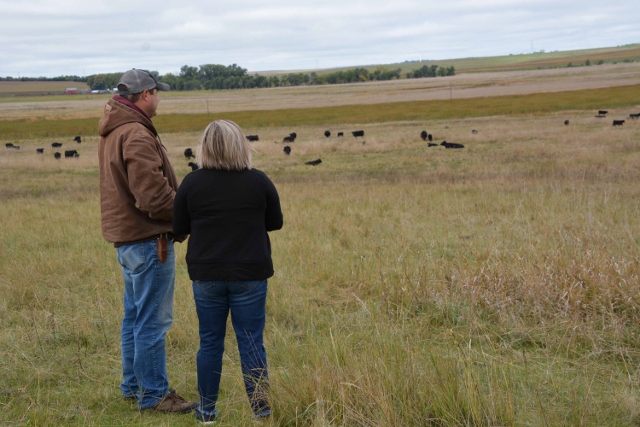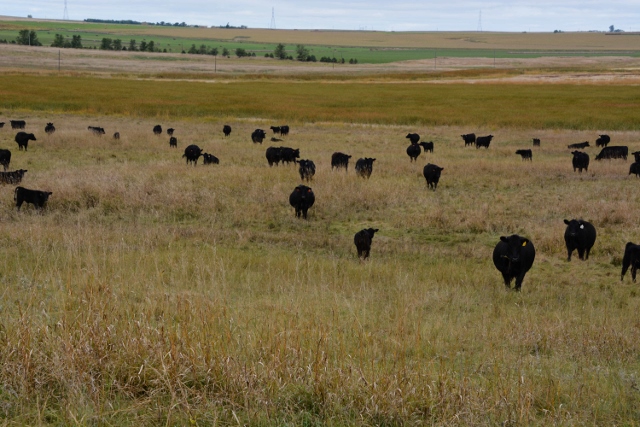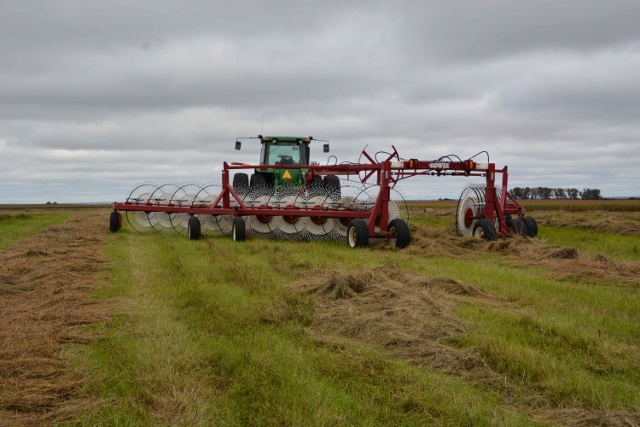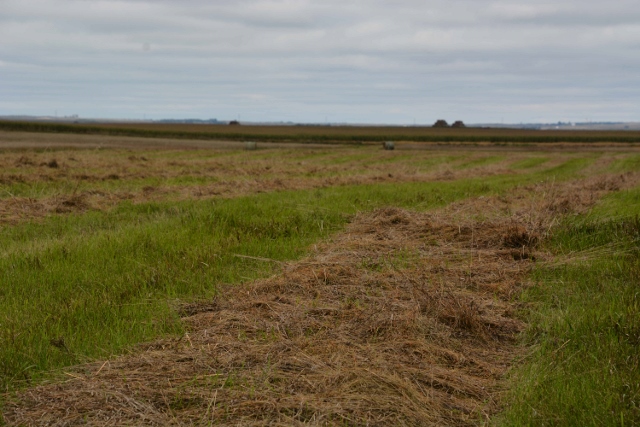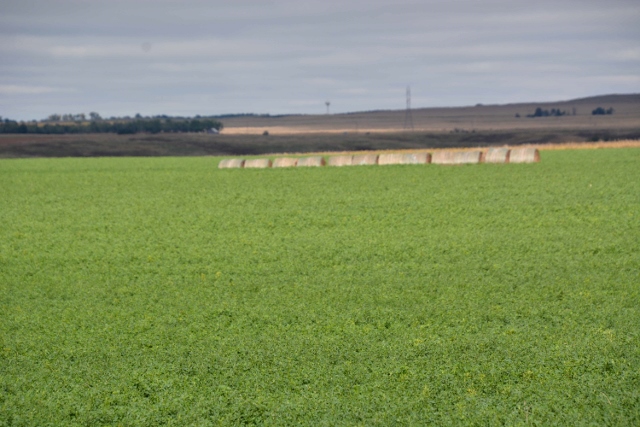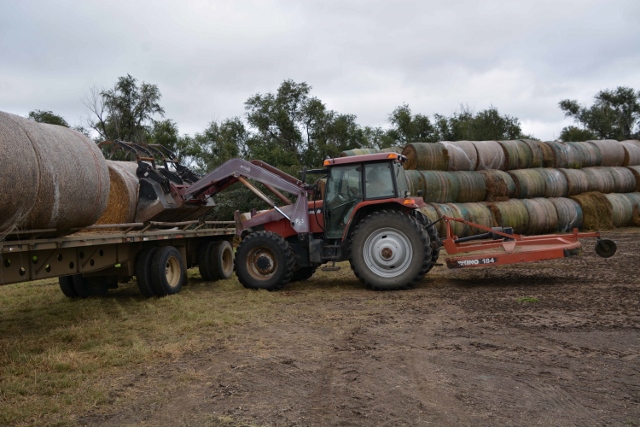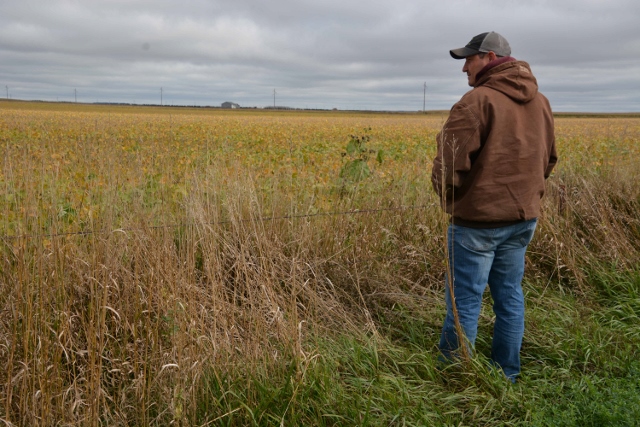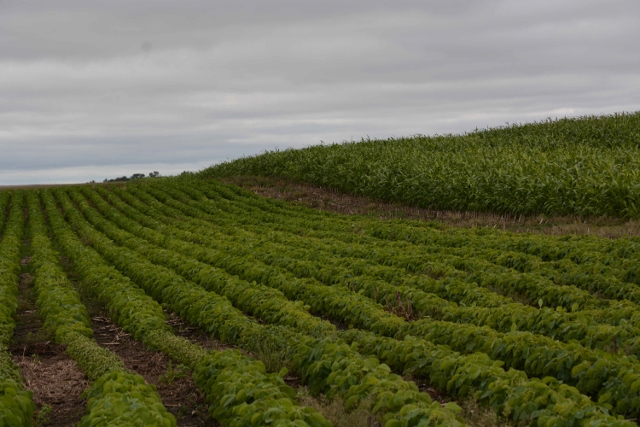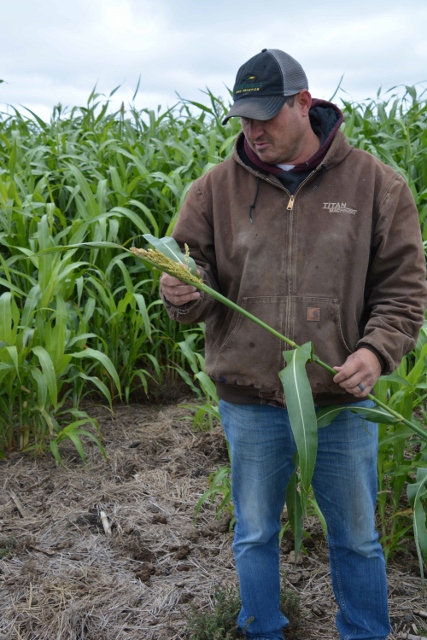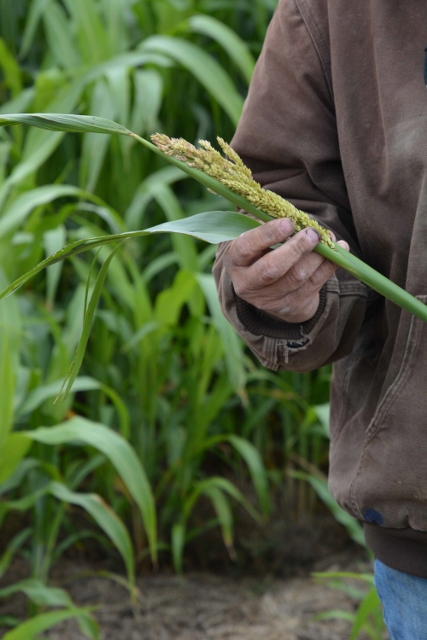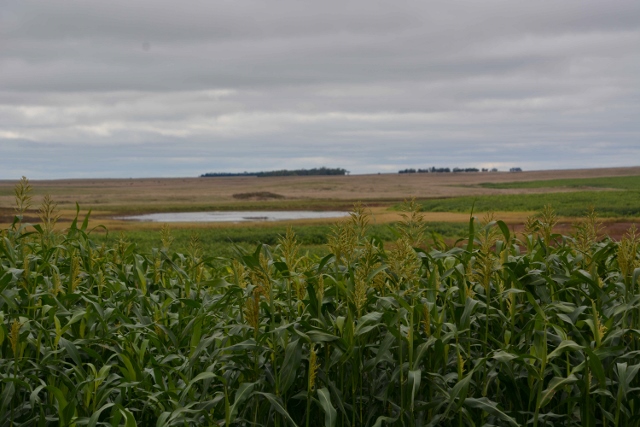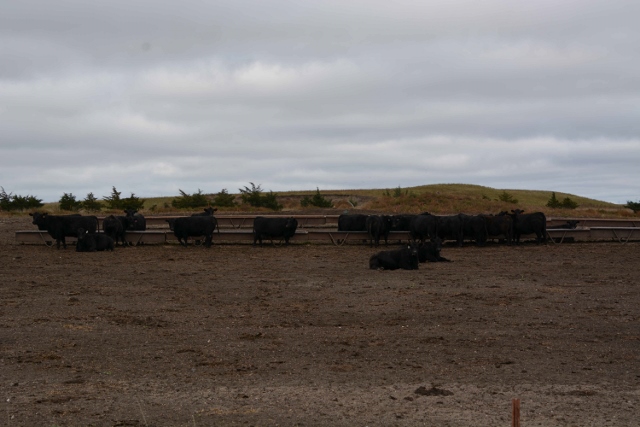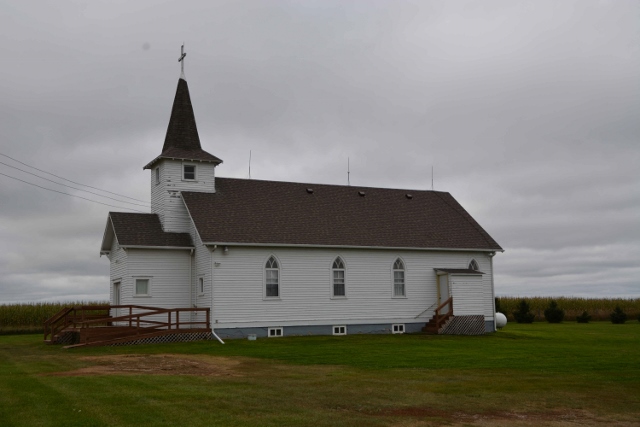Cain Farm Family
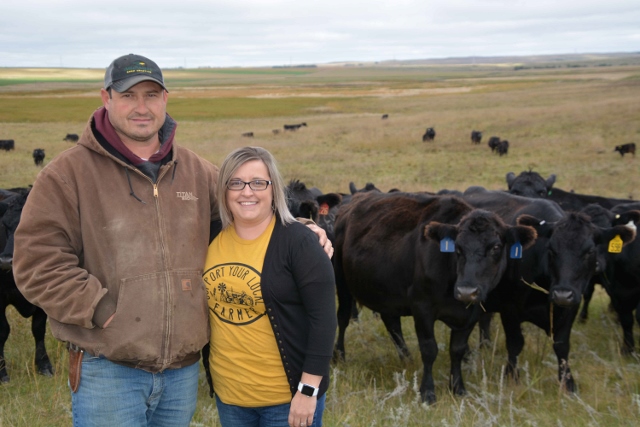
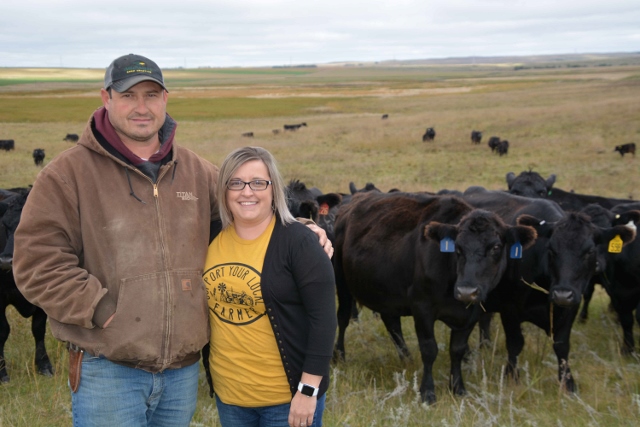
by Lura Roti for South Dakota Farmers Union
Looking out over what had been a field full of sunflowers in 2018 but is now 90 acres of water and Waconia cane, Brian Cain is deciding what to do next.
“Initially I was going to bale this for forage, but it won’t quit raining long enough to dry down, so I think we’ll chop it for silage,” explains the fourth generation Gann Valley farmer in early October. “With a year like this, where everything is so difficult and tests our patience, you gotta think outside the box because what you’ve done in the past won’t work this year.”
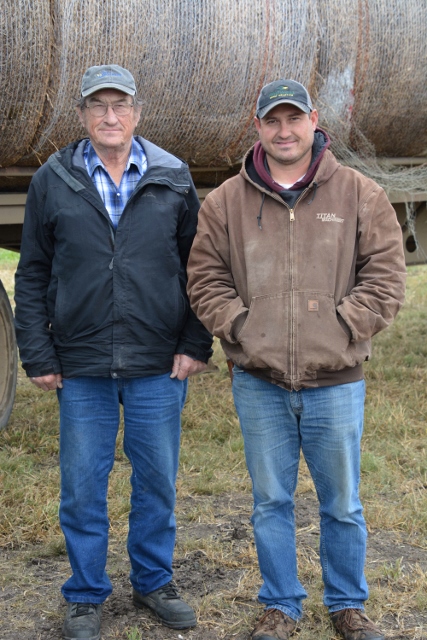
No stranger to figuring out how to make things work, Brian and his dad, Leland, have spent quite a bit of time making decisions when this season’s weather didn’t let them do what they’ve done in the past. With 50 percent of their crop acres too wet to plant this spring, the men worked with an agronomist to pencil out what cover crops would be the most cost effective and work for livestock forages on prevent plant acres.
The land Brian farms with his dad, Leland, is only a mile from where great-grandpa, Charles Cain, homesteaded in 1893. Tragically, Charles didn’t have the opportunity to grow old on his farm. In 1895, just a few months before Leland’s dad was born, he was killed by lightening.
Somehow Leland’s grandma, Matilda, made things work, and the farm was passed down to Leland’s dad, Charles.
Today, Brian’s cousin owns the land. “We are happy the land is staying in the Cain name,” Brian says, of the farming heritage he and his dad also chose to continue.
Although father and son grew up farming, they each took a break to get their pilot’s license.
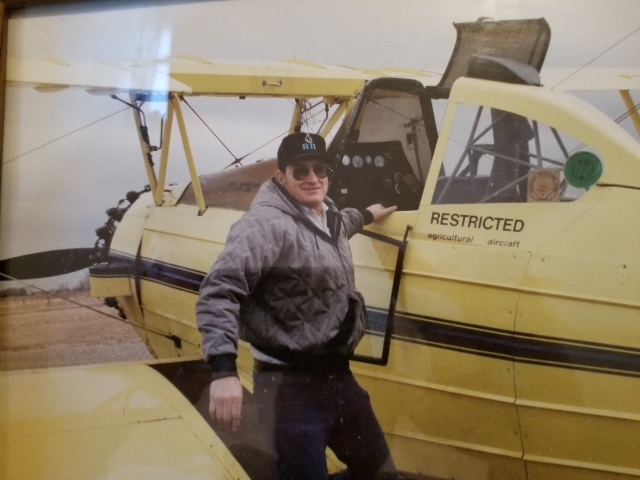
“It’s just one of those things. I wanted to fly fast,” explains Leland, 76, who has flown to nearly every state in the Union, including the north slope of Alaska. “It’s interesting to fly over and see farming or combining from the sky, or in Montana, to see large herds of cattle, or Wyoming and see oil wells. You just see everything from up above.”
After he got his pilot’s license, Leland worked part time for aerial sprayers until he took over an aerial spraying business and opened a plane maintenance shop in Miller. “It was a good business, there was always someone who wanted something done and not a lot of people spraying,” Leland explains.
When he was in his mid-40s, he received the opportunity to purchase a farm that had belonged to one of his dad’s cousins. The land neighbors Saint Placidus Catholic Church. Also known as Duncan Church, the Cains have been members of the congregation since its inception. Grandpa Charles helped build the original building. It’s in this rural churchyard that he rests alongside Matilda. Leland and Beverly were married in the Duncan Church. And Brian was also baptized there.
In addition to Brian, Leland and Beverly have three other sons Michael, Kevin and Ryan.
Growing up, Brian spent many hours as Leland’s co-pilot and helped out in the shop. He credits these experiences with his decision to pursue a degree in aviation maintenance at Kansas State University and a master’s in aviation safety from Central Missouri State University.
Although a growing season like 2019 makes him question his decision. After receiving his master’s in 2005, Brian returned to farm full time with his dad. Together, in a typical year, the men raise corn, soybeans and sunflowers. They run a cow/calf herd, backgrounding their weaned calves to about 1,000 pounds.
Leland quit aerial spraying in 2013 and closed his maintenance shop. Over the years they have expanded their crop acres, leasing and buying land as it became available – many acres from family members. To increase efficiencies and conserve moisture – yes, in typical years they have to worry about drought – they implement no-till practices. When Brian returned home, they began using precision ag technology.
“It allows us to get a lot more done in a day and there is a lot less waste. If I run out of seed, I can just look at the monitor and see how much I need, then I buy just enough to get the job done and not have carry over,” Brian says.
He also began pasture restoration. Partnering with S.D. Game, Fish & Parks to cost-share seed and fencing materials, Brian has restored pastureland by inter-seeding alfalfa along with a blend of warm- and cool-season grasses. “The feed value and quality is three to four times better,” Brian says.
To maintain quality grazing throughout the season, the men rotate cow/calf pairs through 12 pastures. Brian says moving their herd is easy because of the cows’ disposition. “We breed for disposition. We are not getting any younger, and there are less people to get everything done,” he explains. Along with Brian and Leland, the family hires one employee to help with the workload. And, when she can, Brian’s wife, Lindsey, helps out too. “One of our first dates was fixing fence,” says Lindsey, who works as a trainer for Agtegra. “I like working on the farm when I can.”
Together, the couple also work to support their industry. In September they traveled to Washington, D.C., to advocate for family farmers and ranchers as part of the National Farmers Union Fly-In and this October, Brian, 39, was elected to serve as Vice President of Hand County Farmers Union.
“Everyone is getting older and there aren’t many young people getting involved, so that’s why we are getting involved,” Brian says.


